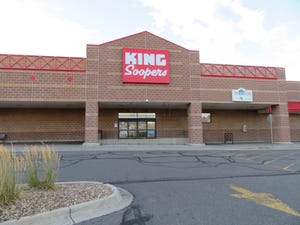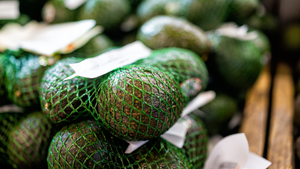Triple Threat: PCC Natural MarketsTriple Threat: PCC Natural Markets
As a Certified Organic food retailer, it's no surprise that PCC Natural Markets has made sustainability an important part of its business model.
September 8, 2008
LIZ PARKS
As a Certified Organic food retailer, it's no surprise that PCC Natural Markets has made sustainability an important part of its business model. But the Seattle-based, nine-store retail cooperative takes sustainability further than most independent operators, conventional or organic.
As Diana Crane, director of sustainability, put it, PCC pursues “a triple bottom line” approach to its business, creating programs that are financially, socially and environmentally responsible. “You really can't develop one without thoughtful consideration of the other two,” she said.
A few months ago, PCC's chief executive officer, Tracy Wolpert, decided to elevate awareness of PCC's many eco-friendly programs, procedures and initiatives — and move them forward even more — through creation of a centralized sustainability function, which Crane oversees.
In that role, Crane is responsible for working with all of PCC's stores and departments to research, evaluate, champion, measure and communicate PCC's sustainability efforts.
What could otherwise be a daunting task, she said, “is helped considerably by increasing consumer interest in living more sustainable lifestyles, and by growing efforts to talk about sustainability on the parts of producers, wholesalers, distributors and retailers in the food industry.”
For its unusual commitment to sustainable practices, PCC was selected as the winner of SN's 2008 Sustainability Excellence Award in the independent retailer category.
While all of its stores reflect its green philosophy, PCC, which has annual sales of $115 million, has put the greatest emphasis on sustainability in three outlets: in Fremont, Redmond, and Edmonds, Wash., the last opening on Sept. 3.
In June 2003, PCC relocated its Fremont store to a larger space and, for the first time in any of its stores — and in any Seattle business — installed a photovoltaic solar panel above the outdoor patio. High-efficiency, full-spectrum lighting was also installed, together with solar-selective glass windows, which reduce heat and glare, and sensors to turn off lights when they not needed.
“We tried to be as environmentally responsible as possible in Fremont, with energy draws that were well under Washington State Code, and we were successful,” said Crane. “Even seemingly small features, such as a store elevator that uses canola oil for lubrication, can make a difference, and customers who are aware of it think it's a really neat, innovative thing for their grocery store to do.”
PCC did not apply for LEED (Leadership in Energy and Environmental Design) certification for the Fremont store, but later realized that much of what had been done would have met LEED requirements, which are set by the U.S. Green Building Council, Washington. That in turn informed PCC's approach to the Redmond store.
“When we began building our Redmond store, working from the ground up, we had more flexibility to incorporate the features we wanted,” Crane said. “Working with our architect, contractor and subcontractors, we made a concerted effort to construct Redmond to LEED Gold standards.”
LEED is the USGBC's rating system for the design, construction and operation of buildings that achieve outstanding levels of energy efficiency and systems performance. Credits are earned for achievement in six environmental categories, and one of four levels of certification is awarded based on total credits.
The Redmond store, opened in May 2006, became the first grocery store in the country to qualify for the LEED Gold certification, Crane said, adding, “Our members, employees, customers and the community were happy and proud that we succeeded.” The store in Edmonds is now on track to become the first grocery store to be certified LEED Platinum.
Crane said that it isn't difficult for PCC, as a natural foods cooperative, to give priority to sustainability initiatives in the building of new stores and the remodeling/refurbishing of existing stores. “Our members and shoppers are keenly interested in food and other products that are healthy for them and their communities,” said Crane. “So it stands to reason that the structures we would build to accommodate the wonderful, natural items we sell would incorporate as many features as possible to keep those items — and our customers — healthy.”
Sustainable building initiatives are not only philosophically right for PCC and its members, said Crane; they also deliver considerable cost savings.
“Our efforts demonstrate that sustainable practices — especially as they relate to green building — can be implemented and maintained in ways that benefit the bottom line. Some people think of a grocery store as a big refrigerator, and therefore as something almost impossible to operate at any level of energy efficiency. But we have learned that there can be simple solutions to such problems.”
An example is the TPO (thermoplastic polyolefin) membrane that covers the roof of the Edmonds store, creating a continuous, reflective white surface that is naturally resistant to heat and ultraviolet light. In addition to making water runoff cleaner, the surface helps limit the use of the air conditioning system.
Another example of cost savings is PCC's use of detergentless floor scrubbers that use “electrically activated” water to clean floors. “We save an estimated 768 gallons of detergent per machine annually, and avoid introducing toxins from floor soap into the store environment,” said Crane.
PCC's Redmond and Edmonds stores feature interconnected space heating, air conditioning, water heating and refrigeration systems, enabling heat generated from refrigeration cases to be used for washing dishes and keeping stores warm.
Sustainability improvements, said Crane, “may incur costs initially, but they save a significant amount of money over the long run.”
The new 25,252-square-foot Edmonds store builds on the sustainable achievements of Fremont and Redmond, but goes further. For example, PCC totally gutted what had been an Albertsons supermarket, removing 109 tons of material, including drywall, metal and insulation — and then recycled 97% of it.
Through a charitable organization, PCC sent much of the store's insulation, Crane noted, to Washington State's Lewis County, which had been devastated by floods last December. “They were able to use two truckloads of insulation from the store to help rebuild the homes destroyed in the flooding.”
The Edmonds store also features PCC's first rainwater harvesting system, which collects water off the roof and holds it in a 4,500-gallon cistern. “That water is pumped out to flush the toilets and irrigate the landscaping,” said Crane. PCC purchased the tank on Craig's List for $500; it could have cost more than $20,000 through conventional sources.
PCC also installed two “rain gardens” in the parking lot at Edmonds. They catch and clean the runoff water in parking areas containing oil and sediments. Plants specially selected for the rain gardens attract birds, butterflies and bees, creating an attractive oasis in the store's parking lot.
Inside the Edmonds store, in the freezer and dairy cases, PCC is using LED lights, which are brighter and cooler, and last far longer, than fluorescent and incandescent bulbs. As it did for the first time in the Redmond store, PCC cut skylights into the roof of the Edmonds store. There are 26 skylights at Redmond and 35 at Edmonds. “Natural light creates a much warmer and more pleasant atmosphere for shoppers,” said Crane, “and it saves considerably on energy consumption.”
Last October, PCC discontinued offering plastic shopping bags in all its stores. The stores provide paper bags and sell reusable bags at cost. Currently more than half of PCC customers bring their own bags, thanks in part to a “Think Reuse” bag campaign incorporating signs inside and outside the stores. PCC has an active membership of nearly 40,000 households.
Another all-stores improvement that Crane said “makes our customers very happy” is the use of NCR checkout printers that print all receipts of 5 inches or longer on both sides, saving an estimated 1,200 miles of receipt tape annually over the eight stores.
About the Author
You May Also Like




